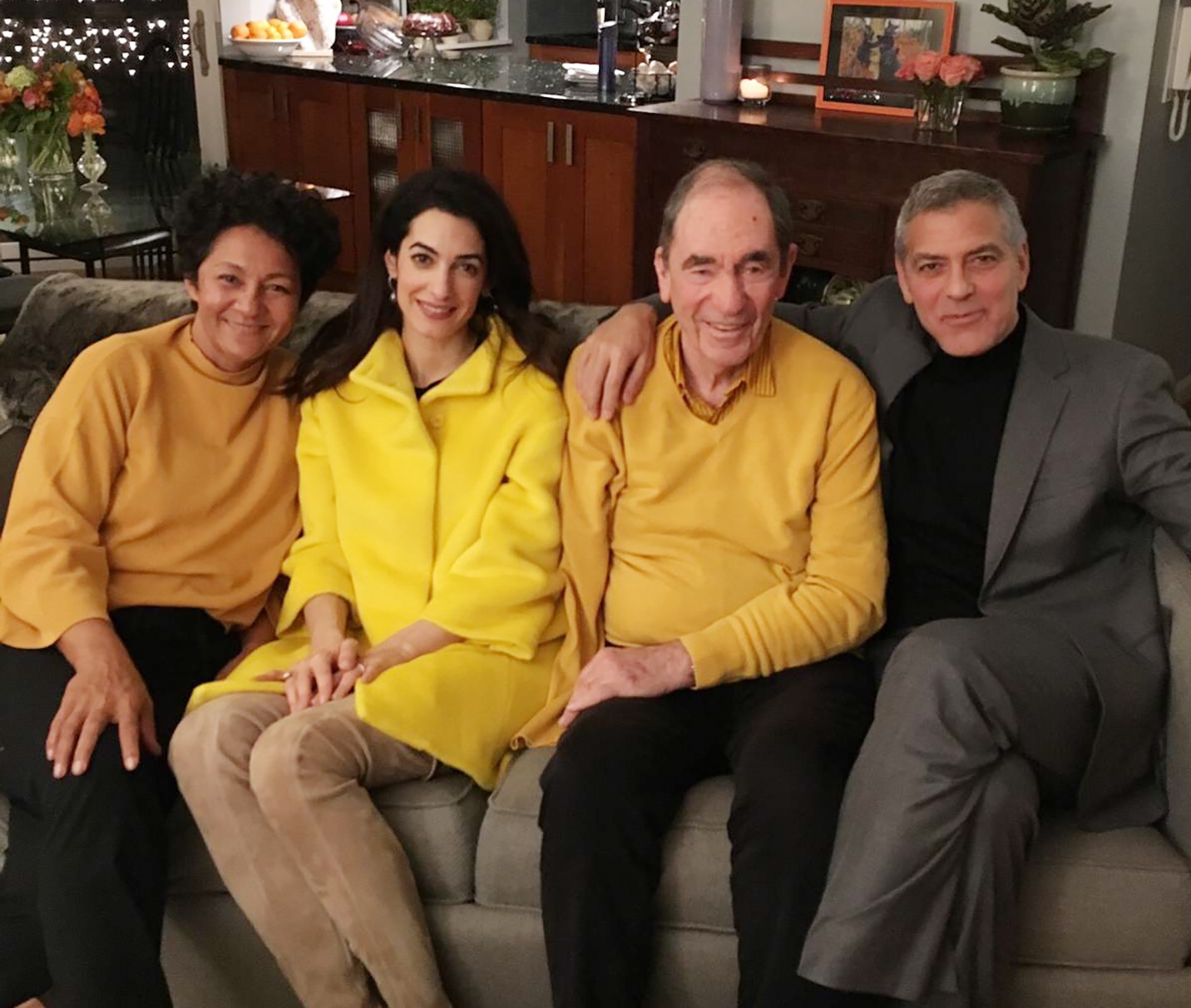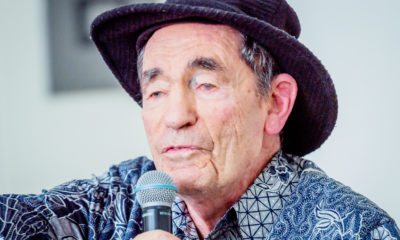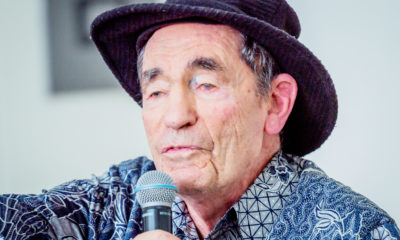
Featured Item

George and Amal Clooney honour Albie Sachs for activism
Retired Justice Albie Sachs recently received a “flattering surprise” when the Clooney Foundation for Justice (CFJ) headed by the celebrity power couple requested permission to name an awards ceremony highlighting justice activism in his honour.
On a visit to New York some years ago, Albie Sachs and his wife, Vanessa September, were invited for coffee with a former law clerk of associate justice of the Supreme Court of the United States, Sonia Sotomayor, and her husband. They had no idea that the former law clerk was Amal Clooney, now a famous barrister specialising in international law and human rights. And so, they found themselves spending an unexpected evening with Amal and her husband, movie star George Clooney.
“I don’t remember the coffee,” laughs Sachs, “but I remember the meeting, it was convivial. Amal is bright and forthright and has a striking appearance, and George, who we all know from the screen, was amiable and relaxed. We all had a picture taken and showed it off to a couple of friends, and that was that.”
A year later, Amal contacted Sachs asking him to assist with her and George’s new justice project, which officially began operating as the CFJ in 2016. Though he didn’t have sufficient time to dedicate to the project itself, Sachs offered his support. He later briefly met Amal in London when she invited him to a conference on press freedom.
“About a year later, she mailed saying that through the foundation, she and George were planning to award prizes to people who had contributed to justice, and asked how I would feel about being the first recipient of that award,” Sachs recalls. “I indicated I would feel honoured.”
Amal later messaged again, explaining that they’d decided to give several awards to honourees contributing to justice in different ways, and that they’d like to name them the Albie Sachs Awards. George later proposed that the awards simply be called the Albie Awards.
“In the email conveying this news, I see a drawing done by George which shows a little statuette with one long arm and one short arm.” Sachs famously lost an arm and sight in one eye in 1988 after a bomb that was planted in his car by South African security services exploded.
“The objective of the statuette is to show that the prizes are given to people who’ve struggled for justice, who have perhaps paid a price and known some pain, people who have been engaged in the struggle with others,” says Sachs. “This greatly moved me.”
At the inaugural Albie Awards to be held on 29 September at the New York Public Library, Sachs will also receive the Lifetime Achievement Award in Pursuit of Justice. Asked about what he considers to be the achievement of his lifetime, Sachs says his work was done as part of a collective.
“I was one of a legion of lawyers who got deeply involved in the struggle to bring down apartheid and create a non-racial, democratic society. I think of people like Griffiths Mxenge and Bram Fischer, two of the many members of the legal fraternity who fought and died for justice. I happen to be a visible survivor of that generation.”
“I see the awards as an acknowledgement of a contribution that I made, but in a very meaningful struggle against racism in which the world participated, a struggle which is still prevalent in many parts of the globe.”
Not only instrumental in drafting South Africa’s post-apartheid Constitution, Sachs was also appointed to the country’s first Constitutional Court by Nelson Mandela. “The award also goes to the Constitutional Court, where some judgments about same-sex marriages and prisoners’ rights to vote were picked up around the world and gave me a certain prominence,” he says. “Yet, the court itself is admired internationally, so it’s also a recognition for South Africa. I’m glad that I’ve been the vehicle to honour something exceptionally fine in our country.”
Now 87, Sachs has no desire to stop working. “Far from slowing down with advancing years, through my work and engagement with people, there’s a kind of energy that brings vitality into my life,” he says. “The older I get, the more valuable I am for intergenerational exchanges!”
Much of his enduring energy comes from having survived the bomb blast. “In surviving their attempt to kill me, I felt joyous and amazed – it blew away a lot of the deep sadness I had after my periods of solitary confinement with some sleep deprivation thrown in,” he says.
Surprisingly, it’s his particularly Jewish sense of humour that came to the fore when Sachs was waking up from the seven-hour operation that followed the explosion. “I can’t see anything, there’s a bandage over my eyes and I tell myself a Jewish joke about Hymie Cohen who falls off a bus,” Sachs recalls. “Hymie gets up, and he makes what appears to be the sign of the cross and his friend says, ‘Hymie I didn’t know you were Catholic.’ He says, ‘What do you mean, Catholic? Spectacles, testicles, wallet, and watch.’”
In the same way, as Sachs regained consciousness, he began to examine himself. “I started with the testicles, and they seemed to be in place,” he says. “I got a huge reputation in the ANC [African National Congress] camps – ‘The first thing comrade Albie did was reach for his balls,’ they said.”
Continuing his checks, Sachs eventually found that “the watch” wasn’t there – he’d lost most of his right arm. Yet his reaction was unexpected. “I felt elation at that moment for which every freedom fighter is waiting – will they come for me, will I be brave, will I get through? In my case, they tried to kill me, and I had lost only an arm.
“I had total conviction that as I got better, my country would get better,” he says. “Almost two years later, I was back home, and we began to work on the Constitution.”








